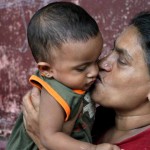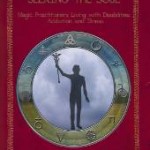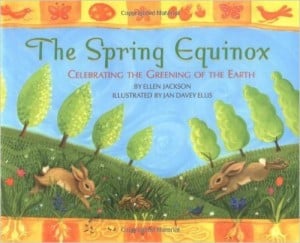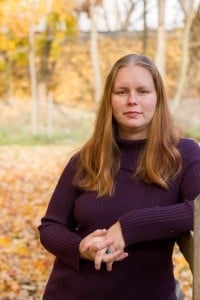
Pagan blogger Tara Miller recently wrote about her thoughts on the difficult question of the intersection of abortion rights and disability rights, asking “as the ability to detect disabilities in fetuses continues to advance, will women be more likely to have an abortion?” Gina Kolata also recently addressed a similar issue in her New York Times piece on the ethical debates over preimplantation genetic diagnosis (PGD), in which she paraphrased ethicist David Wasserman: “Eliminating embryos with [adult-onset genetic diseases] is essentially saying someone [currently living with such a disease] should never have been born.” While Miller leaves her question open, and allows for moral and emotional complexity, Wasserman draws a stark picture of judgment, which is incompatible with Pagan values of compassion and respect for others.
In a society which systematically devalues and discriminates against people with disabilities, which also has a long and ongoing tradition of eugenic sterilization, it is neither surprising nor unreasonable that these questions quickly spring to mind as technological advances make early diagnosis of disability and genetic disease easier. On the personal level, they are worthy questions to consider: what would I do if an ultrasound revealed hydrocephalus, or a missing limb? If I could test embryos for breast cancer, or trisomy 18, or trisomy 21 (Down’s Syndrome) before they were placed in my uterus, would I do so? If tests revealed the presence of genetic disease, would I discard those embryos or proceed with attempting pregnancy with them? As future parents (or simply as thinking beings), it behooves us to consider tough issues like these in the context of our own lives and choices; as Pagans, we do not accept that our conclusions are an implicit critique of the lives or choices of others.
The ethics become more complex as we move from personal considerations to public policy. On what basis may we restrict a pregnant person’s right to control their own reproductive future? Do we get to decide for other people what reasons are “good” reasons to terminate, and what are “bad” reasons? At the foundation lies the question of whether it is morally acceptable to tell someone they must continue a pregnancy when they believe they should terminate it. As someone who strongly believes, as many Pagans do, in the duty of the community to support individual autonomy, I cannot accept that it is my right to make a decision for someone else as to whether or not they should bear or raise a child.
In a perfect, loving community that fully supported individual autonomy, just as no one would ever feel coerced to continue a pregnancy, no one would ever feel coerced to terminate one, either. It is a sad reality of our lives outside of such utopia that financial and other logistical considerations are often inescapable when deciding how to proceed with a pregnancy. While Mr. Wasserman asserts that the choice not to attempt pregnancy with an embryo known to have a genetic disease is an indictment against the right to exist of all people currently living with that disease, this assertion ignores the complexity of lived experience. It is neither my right nor the right of anyone else to sit in judgment of whether another individual is making the “right” or “wrong” reproductive decision in the full context of their own lives.
Arguments about the ethics of abortion and embryo disposal often run into the retrospective fallacy expressed by Ms. Miller when she asks “What if I had been conceived in this era instead of the 70s. Would my mother abort me?” This question is sometimes phrased by anti-choice groups as “what if Beethoven had been aborted?” Although it may be painful to imagine our parents making a different decision if they could have read our genetic map, such speculation cannot be allowed to become the basis for making decisions on behalf of other people as to what they should do with their bodies and their pregnancies. If we are to live our lives in keeping with a philosophy of respect and compassion, we must trust that other people can make the decisions that are best for them and their families, and support them in making those decisions with resources, information, and love.
Cory Ellen Gatrall is a full spectrum doula and reproductive justice advocate, living and writing in Western Massachusetts with her partner and two children.
















